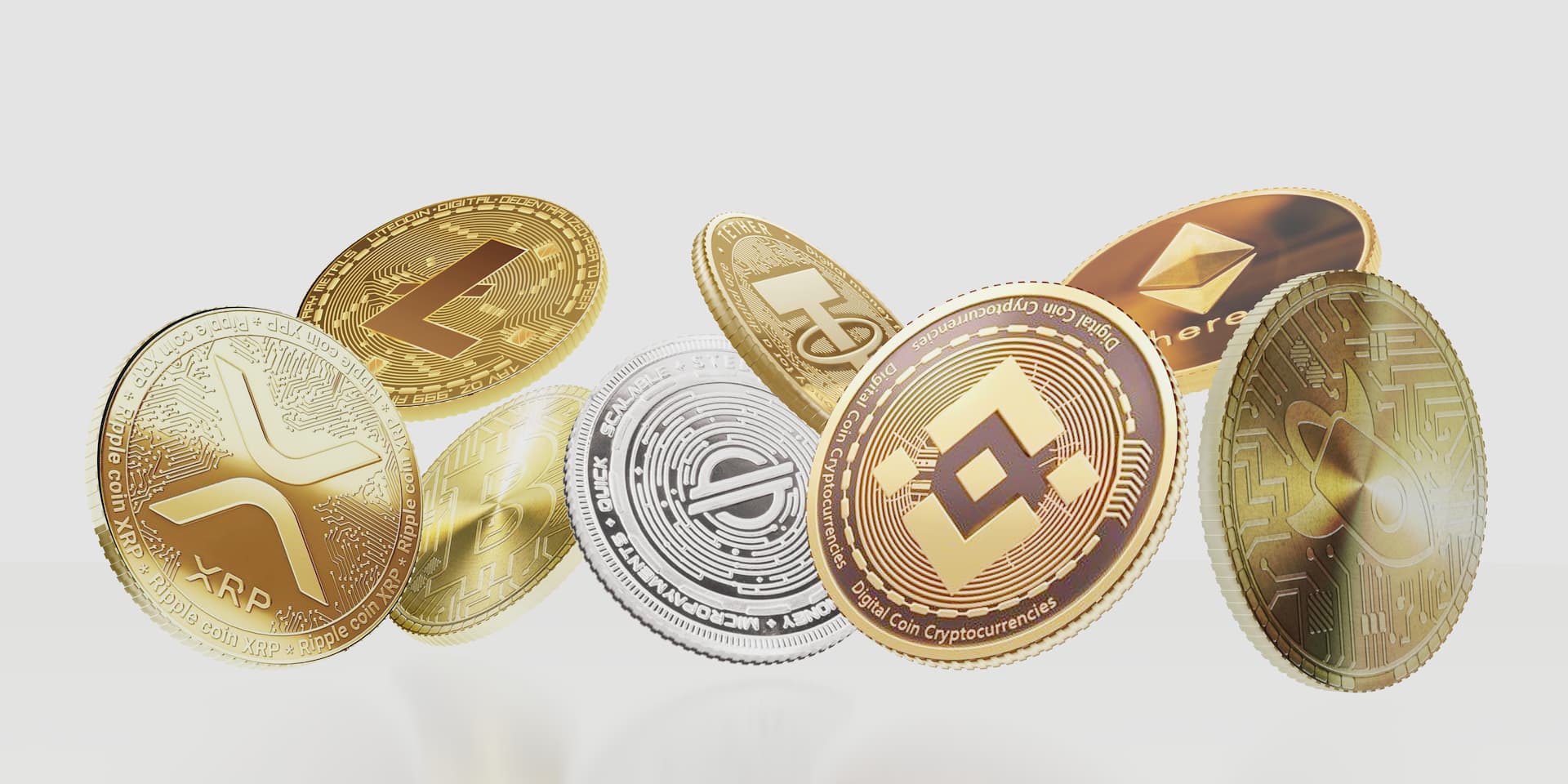Major Cryptocurrencies: Bitcoin, Ethereum, etc.

Cryptocurrencies have revolutionized the financial landscape by introducing decentralized, digital assets that can be traded and utilized globally. Among the myriad of digital currencies available today, Bitcoin and Ethereum stand out as two of the most influential and widely recognized. Learn about their unique features, uses, and impact on the digital economy. Discover how Ripple enhances cross-border payments with its innovative technology.
1. Bitcoin (BTC)
Overview
Bitcoin is the pioneering cryptocurrency, introduced in 2009 by the anonymous creator Satoshi Nakamoto. As the first decentralized digital currency, Bitcoin operates on a peer-to-peer network, using blockchain technology to ensure secure and transparent transactions. It has established itself as a leading asset in the cryptocurrency space. For more in-depth information about Bitcoin, visit the Crypto page on 24markets.com.
Key Features
- Decentralization: Bitcoin's decentralized nature means it is not controlled by any central authority, making it resistant to censorship and interference. This feature is fundamental to its design and appeal.
- Limited Supply: Bitcoin’s total supply is capped at 21 million coins. This scarcity is built into its protocol to mimic the properties of precious metals and contribute to its value. To understand more about Bitcoin’s supply dynamics, see the Crypto page.
- Mining and Proof of Work: Bitcoin transactions are validated through a process called mining, where miners solve complex cryptographic puzzles. This process uses the Proof of Work (PoW) consensus mechanism, ensuring network security and integrity. Learn more about mining on the CFD Trading page.
Uses
- Store of Value: Often dubbed "digital gold," Bitcoin is viewed as a hedge against inflation and economic instability. Investors use it to diversify their portfolios and protect their wealth. More details can be found on the Crypto page.
- Payment Method: Although its adoption as a payment method is growing, Bitcoin is still not as widely accepted as traditional currencies. However, it is accepted by an increasing number of merchants and online services.
- Investment: Bitcoin is widely used as an investment asset, with both retail and institutional investors purchasing it to capitalize on its price movements. For investment strategies involving Bitcoin, refer to the Trading Basics section.
2. Ethereum (ETH)
Overview
Ethereum, launched in 2015 by Vitalik Buterin, extends beyond a mere cryptocurrency. It is a blockchain platform that supports the creation and execution of smart contracts and decentralized applications (dApps). Ethereum’s platform is central to the development of decentralized finance (DeFi) and blockchain innovation. Explore more about Ethereum on the Crypto page.
Key Features
- Smart Contracts: Ethereum enables the creation of smart contracts, which are self-executing agreements with the terms written directly into code. These contracts automatically execute and enforce contract terms, reducing the need for intermediaries.
- Decentralized Applications (dApps): Developers can build and deploy dApps on Ethereum’s blockchain, providing various services and functionalities ranging from financial services to social networking. Learn more about dApps on the Trading Tools page.
- Ether (ETH): Ether is Ethereum’s native cryptocurrency, used to pay for transaction fees and computational services on the network. It also functions as a medium of exchange within the Ethereum ecosystem. For more on Ether’s role, see the Crypto page.
Uses
- Decentralized Finance (DeFi): Ethereum’s smart contracts have facilitated the rise of DeFi, a sector of decentralized financial services that operates without traditional intermediaries. DeFi applications include lending platforms, decentralized exchanges, and yield farming. Visit the Trading Tools page for more insights.
- Token Creation: Ethereum allows the creation of new tokens using its ERC-20 standard. These tokens are often used in ICOs and represent assets or utilities within various blockchain projects. Learn more about token creation on the Crypto page.
- Development Platform: Ethereum provides a robust platform for developing dApps across various sectors, including finance, healthcare, and supply chain management. For development resources, see the Trading Tools page.
3. Other Major Cryptocurrencies
Bitcoin Cash (BCH)
Bitcoin Cash was created in 2017 as a result of a hard fork from Bitcoin. It aims to address Bitcoin’s scalability issues by increasing the block size limit, which allows for more transactions per block and faster processing times. For details on Bitcoin Cash’s features and market impact, visit the Crypto page on 24markets.com.
Ripple (XRP)
Ripple was launched in 2012 and functions both as a digital payment protocol and a cryptocurrency. Ripple’s technology facilitates fast and cost-effective cross-border payments between financial institutions. Its focus on improving the efficiency of international transactions has garnered significant attention. Learn more about Ripple’s technology and applications on the Crypto page.
Litecoin (LTC)
Litecoin, created in 2011, is often compared to Bitcoin as a "lighter" version. It features faster block generation times and a different hashing algorithm, resulting in quicker transaction confirmations. Litecoin’s improvements in speed and scalability make it a noteworthy alternative to Bitcoin. For further information on Litecoin, see the Crypto page.
Conclusion
Major cryptocurrencies like Bitcoin and Ethereum have significantly impacted the financial world, offering innovative solutions and new opportunities for investment and transactions. Bitcoin's role as a digital store of value and Ethereum's advancements with smart contracts and dApps illustrate the diverse uses and potential of blockchain technology. Understanding these cryptocurrencies and their influence on the market is crucial for anyone involved in digital assets and blockchain technology. For more detailed insights and updates on various cryptocurrencies, visit the Crypto page and explore other relevant sections on 24markets.com.
Content
- - Bitcoin (BTC)
- - Overview
- - Key Features
- - Uses
- - Ethereum (ETH)
- - Overview
- - Key Features
- - Uses
- - Other Major Cryptocurrencies
- - Bitcoin Cash (BCH)
- - Ripple (XRP)
- - Litecoin (LTC)
- - Conclusion








